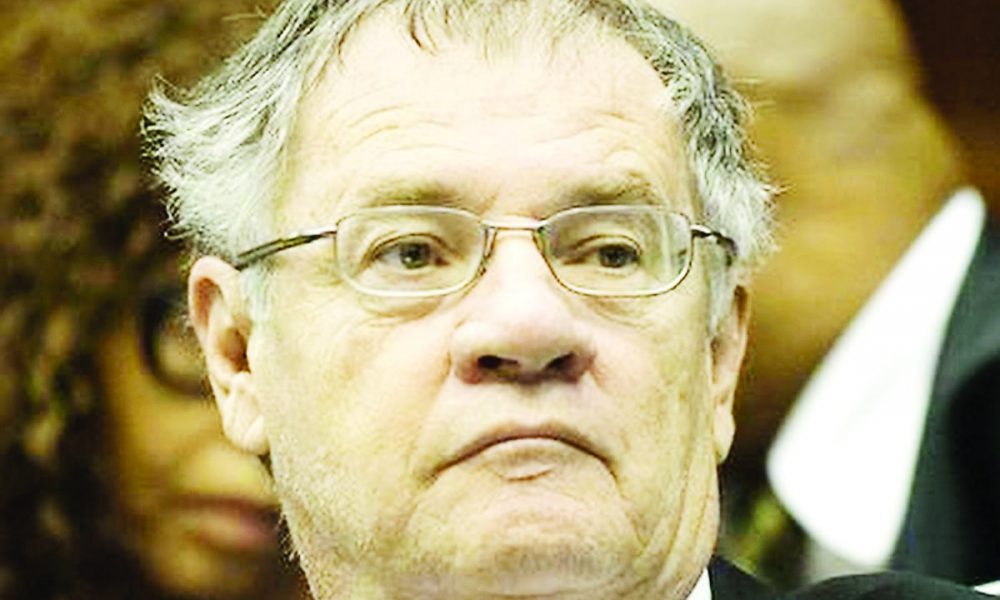Featured Item
Constitutional democracy under threat

South Africa’s political mechanisms are failing the country. Consequently, we rely too heavily on our courts, turning to judges to help secure rights which should be protected by the Constitution. Unless something changes, the future of constitutional democracy is at stake.
So said Judge Dennis Davis in a webinar hosted last week by the Jewish Literary Festival. The veteran legal expert and judge president of the Competition Appeal Court engaged with constitutional law scholar Pierre de Vos on his recently published book, Lawfare: Judging Politics in South Africa, co-written with advocate Michelle le Roux.
An imperfect political system in our country has left ordinary citizens no choice but to turn to the courts to secure their rights. This, however, is less than ideal, said Davis.
“Political struggles have shifted to the courts. People have used the law to produce results in politics around the world, and we in South Africa have known this for a long time since the days of apartheid, when people used the courts to achieve political gains because they couldn’t do so anywhere else.”
Whether it’s about the South African Broadcasting Corporation or political leadership, our judiciary hears cases from across the spectrum every single day. Many of these cases would ordinarily be handled by the legislature but the mechanism isn’t operating properly.
“So many issues we hear should be dealt with at a political level, but it doesn’t happen,” said Davis. “We fail almost every time, and the matter goes to court.”
This is by no means a good thing, he stressed.
“I’m unable to manage my own office, so why would anybody want me to make decisions that should be made politically?” he said. “The courts take months to process cases. Is it a good thing to depend on judges? No. That’s that.
“Judges are being asked to make difficult calls on COVID-19 regulations. It’s so hard to know about these things as a judge. You’re not a virologist, nor are you an epidemiologist. You’re being asked to make calls on things that are often beyond you. Why should I be presumed to know better than anyone else?”
Overdependence on the judiciary takes the sting out of politics, Davis said.
“The balance is vital. You need a stable, coherent political system to ensure a political democracy as much as you need the courts. The fact is that you can’t ask the courts to drag you into a sound constitutional reality. You need politics, but we don’t have that. This is where we are right now.”
He stressed that unless South Africa has a legislative framework that works, it doesn’t matter what the courts do.
“The whole system will collapse anyway,” he said. “The legislature needs to function and uphold the Constitution. There’s a strong critique of the dichotomy between the majestic claims of the Constitution and the degrading reality in which most South Africans live, and COVID-19 has only compounded the problem.
“Without a true constitution, we cannot have democracy. However, you cannot sustain a constitutional democracy if there’s no vindication of the Constitution by an effective legislature, not the court.”
The Constitution is no panacea, and it’s heavily compromised by a lack of concrete policy at political level.
“I haven’t spent 22 years on the bench not to believe in the Constitution, but I do feel that criticism of it is understandable if it’s not being properly implemented,” Davis said. “This can happen only if we plug the gap effectively. If we don’t, we’ll have big problems.”
Every one of us should worry about the lack of development of constitutional democracy, he stresses.
“If you look at when we got our Constitution, there was massive optimism around the world,” said Davis. “Everyone was getting a constitution, and almost every country pledged to be a democracy. Many did, but some that are now facing disaster were once shining lights of democracy at the time.
“Look where we are now. Poland, India, Brazil are all countries which have completely lost constitutional traction. All of them show that we are living in a world where the enterprise of constitutional democracy can’t be taken for granted. Unless we think of ways for politics to sustain our democracy, we’re looking down the barrel.”
Davis said that that the issue needed to be comprehensively addressed as a matter of urgency. The fact that South Africa continues to grapple with corruption is a case in point.
“We had an almost seamless transition of corruption from the old regime of apartheid to the new one,” he said. “But why am I so surprised? At the very dawn of democracy, an arms deal was already at the fore. We’ve faced corruption for a long time because the political mechanisms haven’t developed to deal with the problem.”
With legal instruments failing us, we need to seriously re-evaluate the structure of our government and how the political system ought to operate, Davis believes. This could include a restriction of our electoral system, and a re-evaluation of the role of the legislature.
On a broader level, it’s just as important to find ways for ordinary people to engage with political institutions in a meaningful way that will make a difference.
“Look at COSATU [the Congress of South African Trade Unions] in the 1980s,” said Davis. “People were intimately involved. The trade-union movement was remarkable, and there were ways for people to march as a real countervailing power. We don’t have such a thing today.
“If I were no judge, where would I go to do something and make a difference? Where can I contribute or protest? We are going to have a painful reconstruction of civil society, and we need to implement change.”